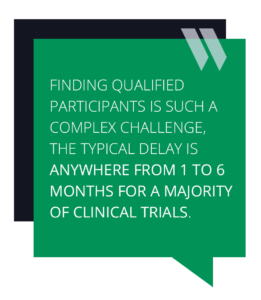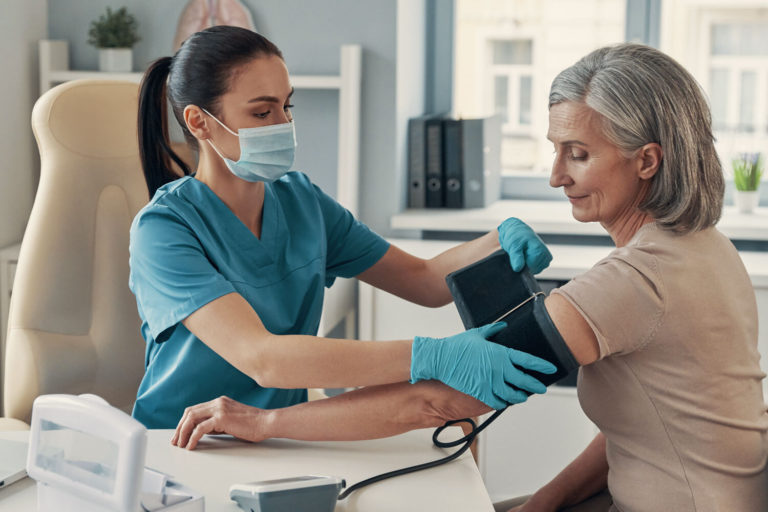Clinical trials run the gamut, from medical devices to therapeutics and drug studies, but they’re all united by the need to prove their safety for human use — and to verify they perform according to their intended design.
This process is exhaustive. For medical devices, the time invested runs three to seven years to bring a device from concept through approvals and ultimately to market. A cancer drug can take between six and twelve years. The time involved in clinical trials seems extensive but it’s for good reason: human lives and well being are at stake. What’s critical in that process? Compliance certainly tops the list – being able to standardize, document and show your data every step of the way is crucial to achieving FDA approval. It’s equally critical to be able to customize clinical protocols for your trial and support patients every step of the journey.
But how exactly do you do that in a modern way?
The right technology platform (or platforms) can be the innovation backbone that provides a simple, straightforward and semi-automated way to unite a team, help patients, ensure clinical compliance, and even customize clinical protocols.
Here are the areas where technology could help transform the clinical trial process – for researchers and patients, for the better.
Finding and recruiting participants
Identifying and qualifying clinical trial participants is a laborious task. In fact, it can take up to 30 percent of the development time – and research indicates it costs $1.2B. What’s more, finding appropriate participants – those who fit the requirements after multiple stages of qualifications – is such a complex challenge, the typical delay is “anywhere from 1 to 6 months for a majority of clinical trials.” CRM-like capability could help source, organize and subsequently schedule regular check-ins with candidates for clinical trials. This would both streamline the identification process and, by eliminating manual efforts for emailing, introduce greater overall efficiency.

Easing the burden of administrative and manual tasks
Data collection is a core part of any trial effort – and the logistical legwork involved is burdensome (and may even contribute to high staff turnover). Technology can reduce the heavy lift that’s required – which is no small thing in trials where check-ins must happen on a weekly or even daily basis. Notes must be taken during in-person visits – and questionnaires and logs are frequently part of the trial process. Having a system that could take care of, for example, automatic follow up to get participant responses, send consent forms for review and signature in advance, etc., would substantially improve productivity. Technology also increases personalization, which helps improve participant convenience. Even simple options like choosing text or email as preferred communications methods can increase comfort and therefore improve the likelihood of continued participation.
Supporting communication
Clinical trials vary according to the specific requirements of each individual trial but communication is an essential component of every trial. Whether it’s email communication to confirm a participant’s acceptance, consent forms, questionnaires that must be filled out, logs of activity, reminders of in-person appointments, technology can ensure that communications are:
- Scheduled on a particular cadence
- Sent and confirmed
- Logged, with a searchable record to show interaction with patients
- Automated to the extent possible – for example, prompts to reschedule a missed appointment
Creating a repository of information
A paper trail is both useful and business as usual but it can become cumbersome to maintain. Yet to demonstrate compliance – with the FDA, NIH, institutional review boards, granting institutions – at every turn in the process, maintenance is always a must. Digital documentation can be a better alternative that offers more security, searchability, instant availability, and a one-stop-shop to find everything from the record of signed consent forms to notes on test results.
Keeping everyone on the same page
A clinical trial is a team approach. In addition to the research staff running and overseeing the effort, there are doctors, nurses, physicians assistants, administrative staff, etc. They all share the need for the full picture in order to do their jobs and take care of participants. A platform that provides that information in just a glance accomplishes that task. As a bonus, with a technology foundation, it takes less time to onboard new research assistants – a critical, if high turnover, part of the clinical trial staff – as they move off the study and on to next steps like graduate school. With all the information in one place, incoming research assistants and other personnel can more easily and quickly get up to speed on the particulars of the trial.
Easing the process for adverse event notifications
Depending on severity, adverse events can knock a clinical trial momentarily off course or derail it altogether. Whether it’s a mild symptom like a low fever or something more dramatic, like anaphylactic shock or an issue that requires immediate hospitalization, adverse events must be rigorously documented. Grant monitors and IRBs are keenly interested in knowing precisely what happened when. Timestamps at every point of participant interaction – from the most routine of interactions like questionnaire completion to, yes, when a participant experiences a negative symptom or outcome – are crucial. Clinical trials can benefit from a faster way to pull together all the paperwork required for analysis, to ensure that those leading the trial can understand what happened much more quickly and adjust as needed for participant safety.
In a clinical or medical device trial, a number of critical elements are at play, including the need to design and customize clinical protocols, track outcomes, have referenceable data about the patient population, support better protocol or device compliance by patient participants, and create a record of demonstrable compliance. Technology is not just a nice-to-have in this situation, it’s a must have. It’s the partner working hard behind the scenes to make life much easier for trial team members and their participants – and ultimately support better outcomes.
About the Author:
Michelle Pampin is the CEO of Welkin Health, a Care Management platform focused on improving health outcomes for people living with chronic diseases. Michelle is an accomplished leader, with a track record of advancing high-growth Silicon Valley software companies. Michelle speaks three languages: Spanish, French and Portuguese. When she’s not busy leading Welkin, she is busy staying active with her Samoyed, Avi.



